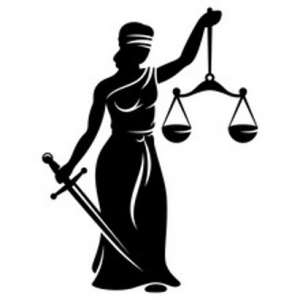
INTRODUCTION
Recent events in Ghana’s Parliament have highlighted significant challenges and opportunities for the nation’s democratic processes. The controversy surrounding Ernest Kumi’s contempt of court conviction, the involvement of the Minority Caucus, and the broader political dynamics offer a lens through which we can examine the principles that must be upheld to strengthen Ghana’s democracy.
ERNEST KUMI’S CONTEMPT OF COURT CASE
Ernest Yaw Kumi, the MP for Akwatia, was found guilty of contempt of court for defying an interim injunction that barred him from taking the oath of office. Despite the court’s order, Kumi proceeded with the swearing-in ceremony, leading to his conviction and the issuance of a bench warrant for his arrest. This case underscores the importance of respecting judicial authority and the rule of law. The appeal filed by Kumi’s legal team, citing concerns of judicial bias, further complicates the situation and highlights the need for impartiality in the judiciary.
MICRO MINORITY CAUCUS INVOLVEMENT
The Micro Minority Caucus, led by Alexander Afenyo-Markin, has been vocal in its opposition to the court’s decision. While it is essential for the opposition to hold the government accountable, it is equally important for them to do so within the bounds of the law and democratic principles. The Micro Minority Caucus’s role in ensuring Kumi complies with the court’s ruling demonstrates a commitment to upholding the rule of law, but their accusations of bias must be addressed through proper legal channels to maintain trust in the judicial system.
PRINCIPLES TO UPHOLD
1. Respect for Judicial Authority: The judiciary plays a crucial role in upholding the rule of law and ensuring justice. It is imperative that all parties respect court orders and decisions, even when they are unfavorable.
2. Impartiality and Fairness: The judiciary must remain impartial and free from political influence. Allegations of bias must be thoroughly investigated to maintain the integrity of the judicial system.
3. Accountability and Transparency: Both the government and the opposition must be accountable for their actions and transparent in their dealings. This fosters trust and confidence in the democratic process.
4. Constructive Dialogue: Open and respectful dialogue between the government and the opposition is essential for resolving conflicts and advancing the nation’s interests.
RECOMMENDATIONS
1. Strengthen Judicial Independence: Implement measures to ensure the judiciary remains independent and free from political influence. This includes providing adequate resources and protections for judges.
2. Enhance Legal Education: Promote legal literacy among citizens and public officials to foster a better understanding of the rule of law and the importance of respecting judicial authority.
3. Encourage Bipartisan Cooperation: Foster a culture of cooperation and collaboration between the government and the opposition to address national issues effectively.
4. Promote Accountability Mechanisms: Establish robust mechanisms for holding public officials accountable for their actions, including transparent investigations and fair trials.
CONCLUSION
The recent developments in Ghana’s Parliament serve as a reminder of the challenges and opportunities inherent in a democratic system. By upholding principles such as respect for judicial authority, impartiality, accountability, and constructive dialogue, Ghana can strengthen its democracy and ensure a more just and equitable society. As Chinua Achebe wisely stated, “One of the truest tests of integrity is its blunt refusal to be compromised.” Fusaini Isah’s Dogomba Wise Proverb reminds us, “A man does not abandon his old firewood until he has gathered new firewood.” The Bible teaches us in Proverbs 12:1, “Whoever loves discipline loves knowledge, but whoever hates correction is stupid.” Finally, as John F. Kennedy once said, “The best way to predict your future is to create it.”
Let us strive to uphold these principles and work towards a brighter future for Ghana. GHANAIANS ARE WATCHING.
Retired Senior Citizen
Teshie-Nungua


